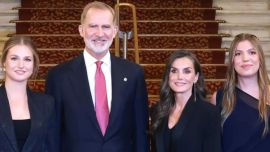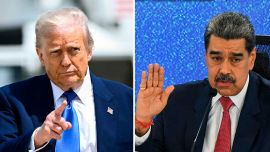THE WEEK IN CORONAVIRUS
There were 3,269,466 confirmed cases of coronavirus contagion and 69,853 deaths at press time yesterday as against 3,118,134 cases and 66,872 deaths the previous Friday. Last weekend Covid-19, which has already claimed the life of one ex-minister, graduated to including an ex-governor in its grim toll – Santa Fe’s Miguel Lifschitz (65). On Monday the government sent a bill to Congress requesting a wide range of pandemic-related superpowers (including the closure of schools) to cover the rest of this year once the current emergency decree expires this coming Friday. On Tuesday Health Minister Carla Vizzotti announced that almost four million doses of AstraZeneca vaccine would be arriving from Mexico in the course of this month although the only vaccine actually delivered last week was half a million doses of Russia’s Sputnik. In midweek Buenos Aires Province Deputy Health Minister Nicolás Kreplak proposed that second doses might be postponed indefinitely in the light of the vaccine shortages. On Wednesday Treasury Prosecutor Carlos Zannini, one of the queue-jumping beneficiaries of the so-called “VIP vaccination” scandal last February which cost Vizzotti’s predecessor Ginés González García his job, kicked up a whirl of controversy when he told C5N news channel that there was nothing to apologise for, even if he had posed as a health worker to grab his jab.
ALBERTO IN EUROPE
Starting in Portugal last Sunday, President Alberto Fernández spent all last week in Europe mustering support from the continent’s leaders for debt negotiations with a Paris Club deadline falling due this month – an issue which he might not be able to unblock without prior or at least simultaneous agreement with the International Monetary Fund (IMF), thus casting doubts on the current government strategy of postponing IMF talks until after the midterm elections. Fernández held friendly meetings with the two Iberian socialist premiers, Portugal’s Antonio Costa and Spain’s Pedro Sánchez, in their respective capitals on Monday and Tuesday respectively with the IMF always uppermost in the agenda – the Frente de Todos president then flew on to Paris claiming the support of both Iberian governments for Argentina’s debt negotiations. The French response was more guarded and lukewarm – the Emmanuel Macron government is not opposed to debt relief in a global context of pandemic emergencies but expressed doubts as to who exactly is governing in Argentina and which policies might be expected. Macron spelled out that any Paris Club deal would need to be prefaced by an agreement with the IMF, thus increasing the pressure against postponing the latter until after the midterm elections. For its part the Argentine delegation pushed for the punitive interest rates of nine percent to be skipped should Argentina not pay the US$2.4 billion owed the Paris Club this month. On Thursday President Fernández held a 25-minute meeting with Pope Francis in the Vatican, also enlisting his support for IMF and Paris Club negotiations, although his real target in Rome was IMF Managing Director Kristalina Georgieva. Elsewhere in the Italian capital premier Mario Draghi expressed general support for Argentina’s debt negotiations. Back home the Senate did not help the presidential delegation’s case abroad when on Thursday it passed a bill to earmark all special drawing rights remitted by the IMF to domestic pandemic spending and not debt cancellation. The presidential entourage on this European swing included Economy Minister Martín Guzmán, Foreign Minister Felipe Solá and Strategic Affairs Secretary Gustavo Beliz, among others.
APRIL INFLATION DATA
Last month’s inflation was 4.1 percent, INDEC statistics bureau reported on Thursday, a fall from March’s 4.8 percent but more than trebling the level needed to keep this year’s inflation within the 29 percent projected in the 2021 Budget. Core inflation (leaving aside seasonal and regulated prices) was even higher at 4.6 percent with the key “food and beverages” item splitting the difference between the former and overall figure at 4.3 percent while the worst culprit was “garments and footwear” at six percent. Hardly any economic expert is now expecting this year’s inflation to close anywhere below 45 percent while expressing concern that inflation remains so high when both the exchange rate and public service prices are flattened. Meanwhile YPF’s announcement of a fuel price increase of five percent as from today is not likely to help this month’s inflation figure.
PENSION HIKE
The quarterly pension hike will be 12.12 percent as from next month, the ANSES social security administration announced on Monday, ranging from 23,064 to 155,203 pesos for minimum and maximum retirement benefits respectively. This percentage will also apply to child and family benefits.
ELECTIONS DELAYED
On Thursday the Constitutional Affairs Committee of the Chamber of Deputies unanimously signed a statement proposing the postponement of the PASO primaries to September 12 and the midterm elections to November 14 although beyond the consensus over the dates, the opposition also pushed for the introduction of a single ballot and the restoration of postal voting.
MARKET WATCH
The “blue” dollar, the main parallel exchange rate, had a bumpy week, finally closing yesterday at 153 pesos as against 151 pesos the previous Friday, but well behind the official exchange rate (which remained unchanged all last week at 99 pesos as quoted by Banco Nación) if the 65 percent surcharges for purchasers are added. Among the unofficial but legal alternative exchange rates the CCL (contado con liquidación) inched up to 159.30 pesos as against 158 the previous Friday but the MEP (mercado electrónico de pagos) edged down to 153.60 pesos as against 154.40 pesos the previous Friday. Country risk, which advanced beyond 1,600 points on Tuesday due to Paris Club debt jitters, later retreated to close yesterday at 1,595 points from 1,574 points the previous Friday.
SOY PRICES HIT HEIGHTS
Global soy prices topped US$600 per ton for the first time in nine years on Tuesday, despite (or perhaps because of) a lower harvest this year – 127 million tons as against 137 million in 2020.
NEW UIA HELM
Daniel Funes de Rioja, 75, current head of the Copal food industry chamber, was elected the next president of the Argentine Industrial Union (UIA) last Tuesday, succeeding steel plant executive Miguel Acevedo. Funes de Rioja has had issues with the government’s price controls in recent months.




















Comments